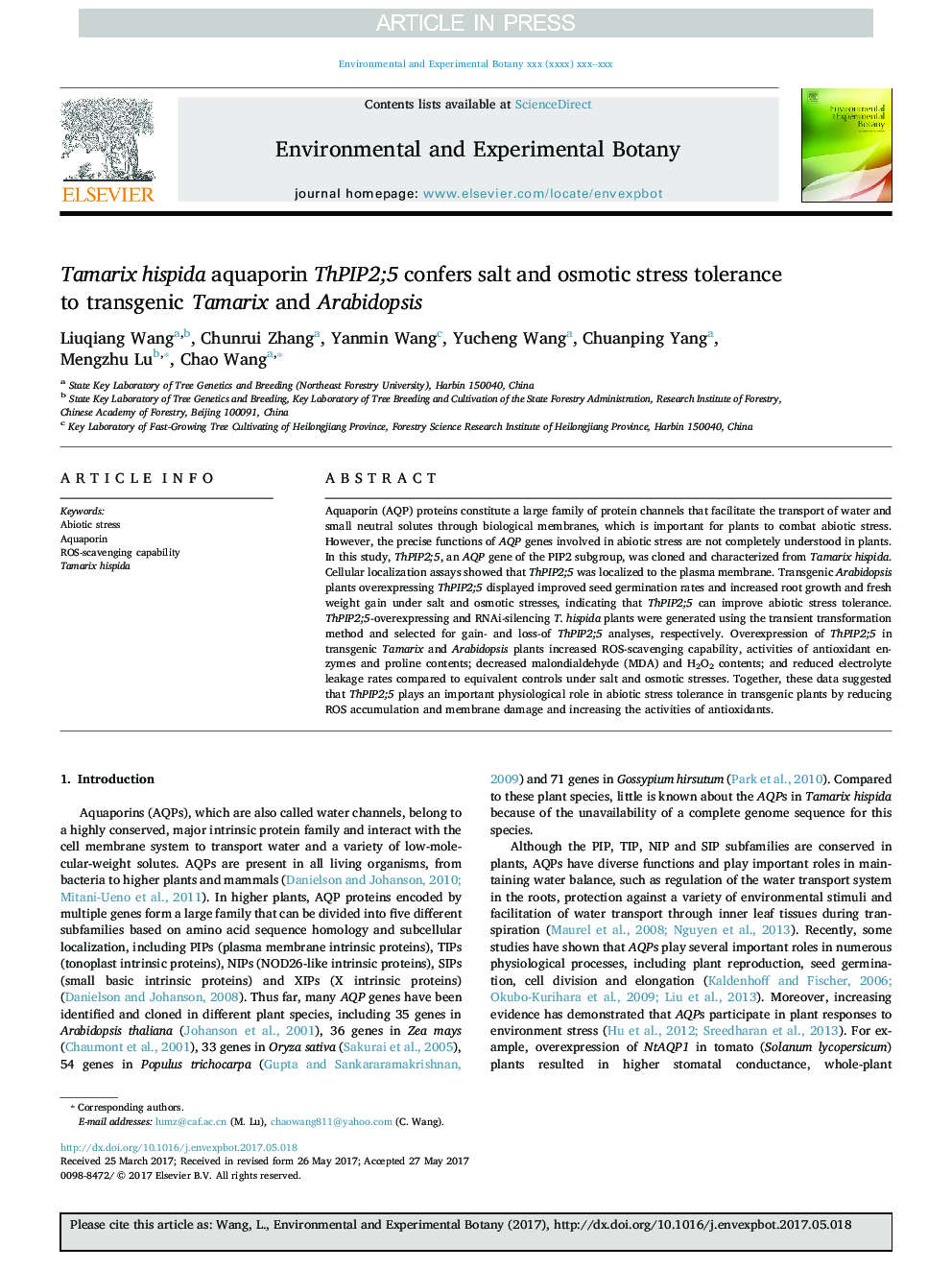| Article ID | Journal | Published Year | Pages | File Type |
|---|---|---|---|---|
| 8886965 | Environmental and Experimental Botany | 2018 | 9 Pages |
Abstract
Aquaporin (AQP) proteins constitute a large family of protein channels that facilitate the transport of water and small neutral solutes through biological membranes, which is important for plants to combat abiotic stress. However, the precise functions of AQP genes involved in abiotic stress are not completely understood in plants. In this study, ThPIP2;5, an AQP gene of the PIP2 subgroup, was cloned and characterized from Tamarix hispida. Cellular localization assays showed that ThPIP2;5 was localized to the plasma membrane. Transgenic Arabidopsis plants overexpressing ThPIP2;5 displayed improved seed germination rates and increased root growth and fresh weight gain under salt and osmotic stresses, indicating that ThPIP2;5 can improve abiotic stress tolerance. ThPIP2;5-overexpressing and RNAi-silencing T. hispida plants were generated using the transient transformation method and selected for gain- and loss-of ThPIP2;5 analyses, respectively. Overexpression of ThPIP2;5 in transgenic Tamarix and Arabidopsis plants increased ROS-scavenging capability, activities of antioxidant enzymes and proline contents; decreased malondialdehyde (MDA) and H2O2 contents; and reduced electrolyte leakage rates compared to equivalent controls under salt and osmotic stresses. Together, these data suggested that ThPIP2;5 plays an important physiological role in abiotic stress tolerance in transgenic plants by reducing ROS accumulation and membrane damage and increasing the activities of antioxidants.
Related Topics
Life Sciences
Agricultural and Biological Sciences
Ecology, Evolution, Behavior and Systematics
Authors
Liuqiang Wang, Chunrui Zhang, Yanmin Wang, Yucheng Wang, Chuanping Yang, Mengzhu Lu, Chao Wang,
